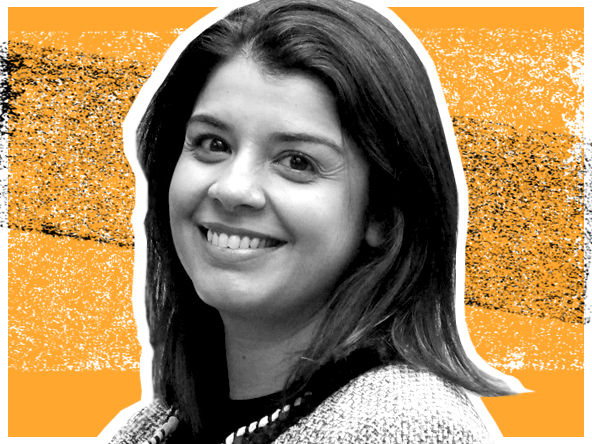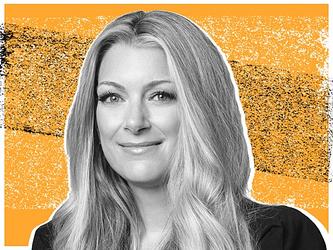How I work: Vidisha Gaglani, CEO, Streetbees

What does a typical day look like?
A typical day usually starts around 7am. I have a young daughter, so I have to get her ready for nursery – breakfast, getting her dressed and the usual arguments about what she’s allowed to wear and not. I will in that time check my emails to make sure there isn’t anything urgent that requires my attention, and if there is I mark it or pass onto the team to look at as well.
If I am working from home, I will try to fit some exercise in after I drop my daughter off before I start working. If I am in the office, I will try to get work done on the train and catch up on industry news. I aim to be back home or log off by 6pm/6.30pm, so I can spend time with my daughter. Most evenings will involve logging back in for a few hours, just to catch up on bits and pieces, making sure anything urgent is addressed. I manage my time with my family but so I address key things at work.
How have you adjusted to being CEO since your appointment in 2023?
It was quite a big change. It wasn’t completely new to me though – I was at Streetbees for almost eight years, and joined initially to lead the research function. Over the years, I grew that team and stepped into the chief customer officer role. In my previous role, I was already leading a lot of the client relationships, and had a lot of exposure to the commercial side of the business as well. My background is in the industry – I have been in the market research industry for 18 years. I understand how it works, and I understand the customers and what they need. That helps me to give that guidance and direction.
The big change for me was taking on the management of the business and managing other teams as well. The key learning in that process has been the importance of building a strong team. Having strong leaders in place and empowering that team to work alongside myself to deliver against the business’ objectives, strategy and vision. That has been critical in helping me in the adjustment – now I am very well adjusted, I would say.
What motivates you in your career?
Being at the cutting edge is exciting for me. My background is psychology – I studied that at university – and I’ve always had that passion and curiosity about understanding human behaviour, why people do what they do and why they make the choices they do. I’ve also come from a market research background – having experienced the challenges and shortcomings of traditional research approaches in previous companies I have been in, for me it is a huge drive to know that [Streetbees is] making a huge change in the industry for the better.
What is your style of working?
I believe in empowering team members rather than micromanagement. That is not to say I am not a hands-on person, but at the same time I believe in empowering your team, guiding them, coaching them and holding them accountable, ultimately. You need the team to run the business, and if you’re one person trying to control everything it becomes difficult.
I spend time with the team listening to them – they’re all experts in their own areas, and so I listen to them, take into account their perspectives, share my perspectives, and we align on a way forward. I think that’s also how they’re looking at managing their own teams. If you want to own something, that’s great, but you will be held accountable for it as well. As long as everyone respects and understands that, it develops a great culture within the business.
Do you see the work culture as the core benefit of the approach you take?
In the last 18 months, I and the team have made huge efforts to foster a more positive and collaborative working culture. What we have done is encourage greater cross-team collaboration – making sure people have visibility of what other teams are working on, what their goals are, what their targets are and what their performance is based on.
I think that has really helped create greater respect for each other. When there are tension points or friction points, there is a sense of why that may be. It has been a very important aspect of what we have built in the business since I stepped into the role.
Do you prefer working from home or the office?
There are pros and cons of both, and I like the hybrid approach, as the days at home I get time to think; I get to catch up on things and have the time to think about business strategy. But in the office, I love connecting with the team. I have my one-to-ones in the office wherever possible, and we have our management and leadership meetings in the office. Having that balance of both is important.
What motivates you outside of work?
Most of my time outside of work is with my family, spending time with my daughter and partner, whether that’s at home playing games, or going out, eating out and trying new foods. I have always loved travelling – I spent a lot of time doing that in my youth, and I also worked out of Australia for 10 months. I like experiencing new cultures. We try to get away once or twice a year.
When it comes to work-life balance, how do you manage that?
There are times when I focus on my daughter. In the morning, even though I might be checking emails while she has her breakfast, the fact is that that time is with her, and in the evening that time is with her. I try to avoid working working on weekends as much as possible, and I manage to do it most of the time unless something critical happens. I try not to let my time with her get disrupted.
I am quite disciplined about coming home and being with her in the evening, spending time in the mornings and the weekends with her. It means that sometimes I do log in on the evenings, but it is not every evening and it is the way I like working – I would rather do that than panic about things in the morning. It gives me peace of mind that I have addressed what I needed to address the evening before, and my time in the morning would not be interrupted or disrupted.
Do you have any tips for managing workloads?
I think it is down to two things: prioritisation and being organised. I think it is really important to understand and know what the priorities are – you will only have so much time in the day. If I have back-to-back meetings, there’s no way I am going to get through six other things on my list on that day. Have a plan of knowing what you have on each day, knowing what you can realistically get done and when you can get it done, and then on that basis prioritising what you have got to do. And being clear to the people on the receiving end what is doable, whether that is internally or with clients.
If you manage those expectations from the start as well, it makes conversations a lot easier. The worst is when you overpromise and then you can’t actually deliver. If you be realistic and set expectations, you do everyone a favour.
How do you think working practices in the industry are shifting?
I see a bit of a polarisation. I see companies like ours that are adopting a more hybrid culture, being a bit more flexible to the individuals’ needs. You know what you have to get done, we trust you get it done. We are seeing that shift in a number of organisations. Then we have organisations that are demanding that employees come into the office five days a week, who are trying to return to the culture and ways of working pre-pandemic. I think that is quite hard as the world has changed, people have changed and their habits have changed. I think it’s important you respect that.

We hope you enjoyed this article.
Research Live is published by MRS.
The Market Research Society (MRS) exists to promote and protect the research sector, showcasing how research delivers impact for businesses and government.
Members of MRS enjoy many benefits including tailoured policy guidance, discounts on training and conferences, and access to member-only content.
For example, there's an archive of winning case studies from over a decade of MRS Awards.
Find out more about the benefits of joining MRS here.














0 Comments